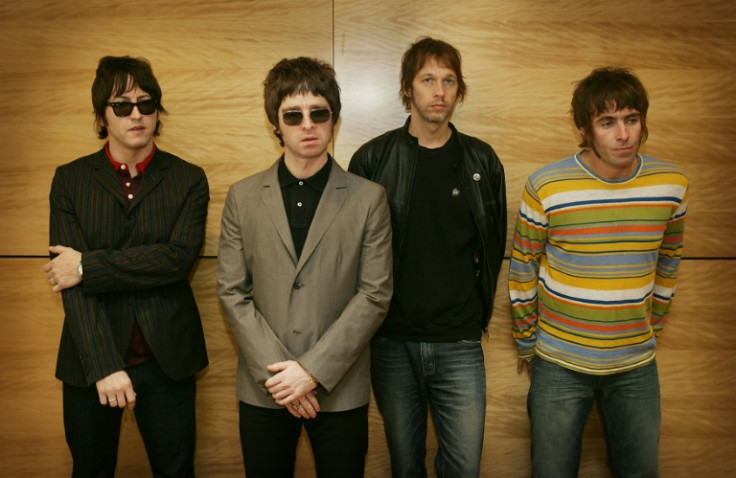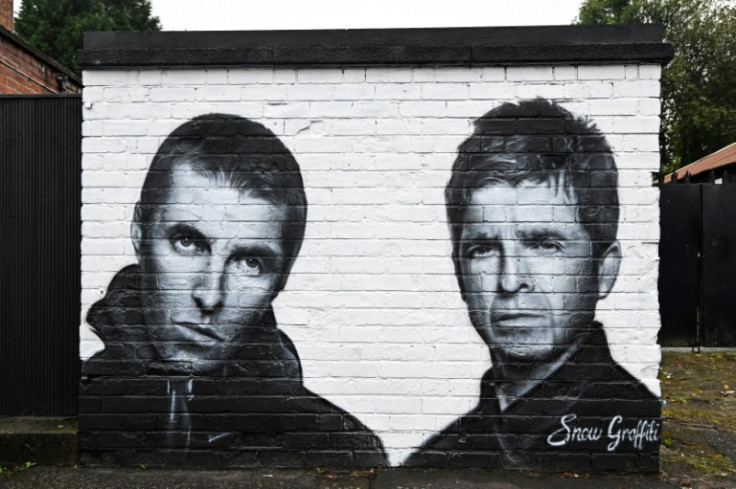Oasis: From Clash To Cash

Fifteen years after their explosive split, British music legends Liam and Noel Gallagher are reuniting for an Oasis tour that promises not only Britpop nostalgia but also staggering revenues.
While Liam has insisted that money is "way down the list" of reasons for the feuding brothers' reunion, British press reports have suggested that each sibling could pocket around GBP50 million ($67 million).
Matt Grimes, a music industry expert at Birmingham City University, offered a slightly more conservative estimate of around GBP40 million per Gallagher for the 17 UK dates alone.
Oasis, whose hits include "Wonderwall", "Don't Look Back in Anger" and "Champagne Supernova", kick off the reunion tour on July 4 in Cardiff before playing several dates in their home city of Manchester the following week.
Almost 1.4 million tickets have been sold for the UK shows, generating an estimated GBP240 million, according to Barclays bank.
And that's just the beginning.
Merchandise sales, from T-shirts and puzzles to baby clothes and tableware, plus six pop-up shops across the UK and Ireland could push total revenue to around GBP400 million, Grimes said.
The 24 concerts outside the UK, including in Buenos Aires, Chicago, Sydney, Tokyo and Toronto, will drive revenues even higher.
Still, the money from the return of Oasis is dwarfed by Taylor Swift's record-breaking Eras Tour, which grossed $2.2 billion from ticket sales alone across 149 shows worldwide.
It was "a much bigger logistical event or sets of events than Oasis are proposing", Grimes said.
There was a chaotic scramble for prized Oasis tickets when they went on sale in August last year.
But fans were left outraged by exorbitant ticket costs that saw sudden price hikes -- known as dynamic pricing -- based on overwhelming demand, in some cases from GBP150 to GBP350.
Ticketmaster, one of the official sales websites, said the pricing decision was made by the "tour organiser".
Oasis pointed the finger at their promoter.
The Gallagher brothers' promotional plan, however, was minimal: two posts on social media -- one to tease, the other to confirm.
"The fact that they announced a reunion after many, many years of 'will they, won't they' is enough to make the press interested," Chris Anderton, professor of cultural economics at the University of Southampton, told AFP.
For Oasis there's no new album to promote, just classics to revive.
"In the 1970s, even maybe the 1980s, you went on tour to sell albums," Anderton said.
"Now you go on tour to make money and the album is something on the side -- if you make one at all."
"Definitely Maybe", released 30 years ago, climbed back to the top of UK sales charts on the back of the reunion tour announcement.
Each Oasis concertgoer will spend an average of GBP766 on tickets and outgoings such as transport and accommodation, according to Barclays.
That is set to inject GBP1 billion into the British economy.
Two key shifts help explain the rise of mega-tours, said Cecile Rap-Veber, managing director at the French artists' rights group Sacem.
On one hand, streaming "doesn't bring in as much money as the CD era", prompting artists to look at how to make money elsewhere, she said.
On the other, "the public's appetite for live shows" surged after the lockdown years of the Covid-19 pandemic.
Those factors make fans more willing to spend big.
Grimes sums up the choice: "Do I go to... Spain or maybe the south of France for a week's holiday that's going to cost me GBP600? Or do I go and see my favourite band?"

© Copyright AFP {{Year}}. All rights reserved.





















